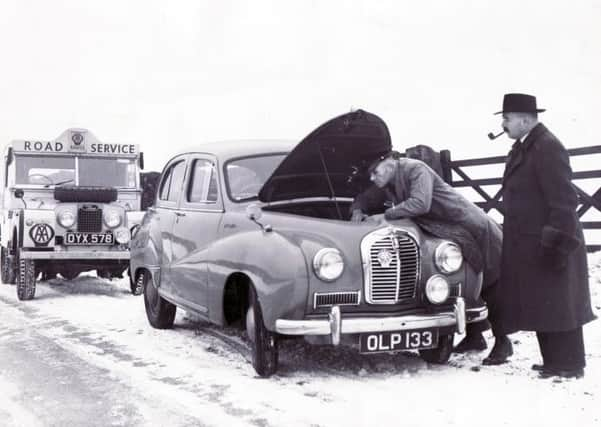AA makes weak stock market debut


The AA, best known for its roadside recovery services, said it had priced its initial public offering (IPO) at 250 pence a share to raise gross proceeds of £1.4bn.
Most of the money will go to its private equity owners.
Shares opened at 244 pence each and fell 2.6 per cent in conditional trading.
The share offer was oversubscribed however.
Advertisement
Hide AdAdvertisement
Hide AdChris Jansen, chief executive, said: “We are delighted that we have seen such strong demand for shares in AA plc.
“It is no doubt driven by a combination of the core strengths of the business and the expectation of what we can do with the business in the future.
“Everyone at the AA is delighted that we will soon be a public company and we are all looking forward to the next chapter in our 109-year history.”
More UK companies are seeking to list on the stock market this year and investors have become increasingly choosy about which companies they back and the prices they are willing to pay in recent weeks.
Advertisement
Hide AdAdvertisement
Hide AdProceeds from UK IPOs more than tripled in the year to date with $8.8bn raised across 33 listings.
AA’s share sale follows last month’s flotation of holidays-to-insurance company Saga, which its private equity owners merged with the AA in 2007 under parent vehicle Acromas.
Saga shares are trading at 170 pence, 8 percent below the price they were sold at in the IPO.
Bankers pointed to other private equity-backed companies that have struggled after their market debuts.
Advertisement
Hide AdAdvertisement
Hide AdSpanish travel agency eDreams Odigeo, part-owned by Permira and Ardian, has lost almost 40 per cent since its April listing, while Charterhouse’s Card Factory, which is based in Wakefield in West Yorkshire, has lost nearly 8 per cent.
Conditional trading allows City firms to buy and sell shares to stabilise the price before launching on public markets.
AA’s share sale enabled its private equity owners Permira, Charterhouse and CVC to sell their entire shareholding, after failing to sell anything with the Saga listing.
The private equity firms sold their stakes to a management buy-in team, led by Bob Mackenzie, a former boss of car insurer Green Flag who is to become AA’s executive chairman, backed by institutional investors.
Advertisement
Hide AdAdvertisement
Hide Ad“London is still a fantastic place to raise money,” Mr Mackenzie said.
“We saw 10 cornerstone investors and then we felt we had enough to make a credible offer.”
Cheadle-based AA received commitments of over £930m from those investors, which include Aviva , BlackRock and Legal & General.
They will take on AA’s roughly £3bn of debt.
“The focus is on deleveraging the business,” said AA executive director Martin Clarke.
Advertisement
Hide AdAdvertisement
Hide AdThe company will use £185m of the IPO proceeds, raised by the sale of new shares, to help pay down debt. “The business is highly cash-generative and so will naturally deliver over time.”
The AA is the UK’s biggest motoring organisation and roadside recovery service, with around 16 million customers.
It also offers motor and home insurance and a driving school.
The firm, which says it rescues a broken-down vehicle every nine seconds, had earnings before interest, tax, depreciation and amortisation (EBITDA) of £422.8m in the year to January.
Advertisement
Hide AdAdvertisement
Hide AdPretax profit was £214.6m, down from £312.7m a year earlier because of an increase in finance costs.
The placement was brokered by Cenkos and advised by Greenhill and Deutsche Bank.
AA represents more than 40 per cent of the UK breakdown rescue market and responds to 10,000 calls a day.
Around 16m people in Britain have at least one AA product.